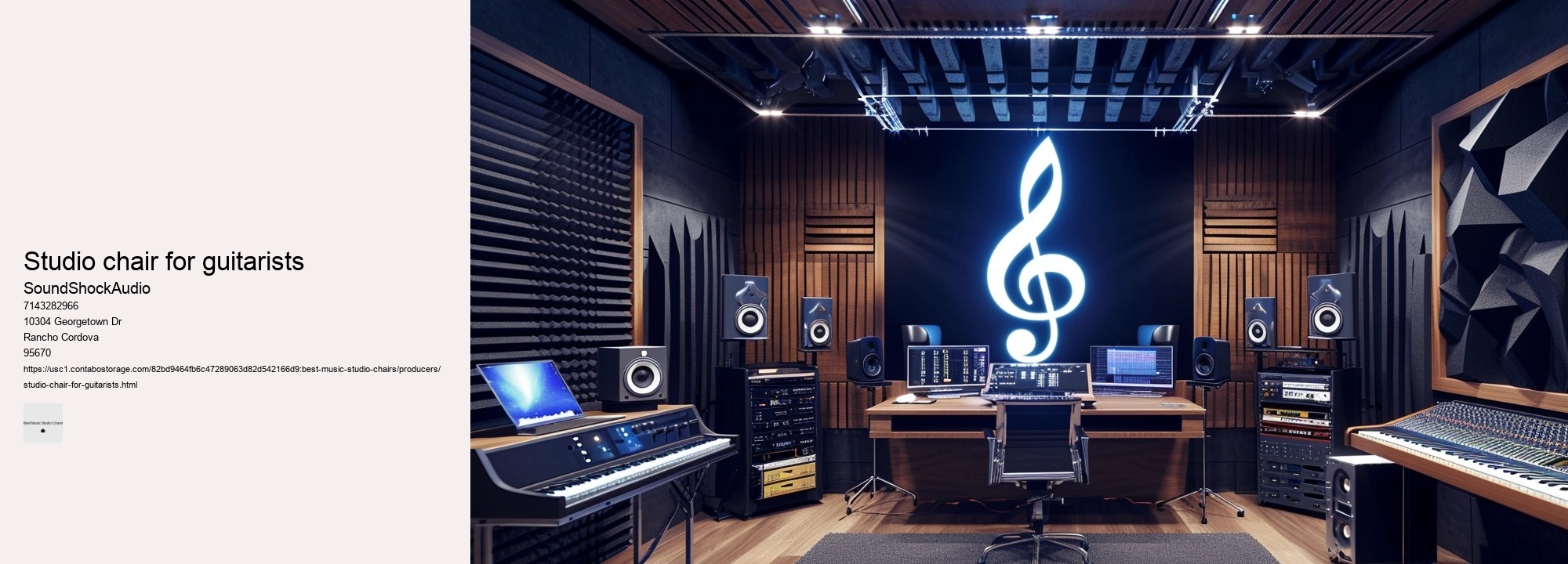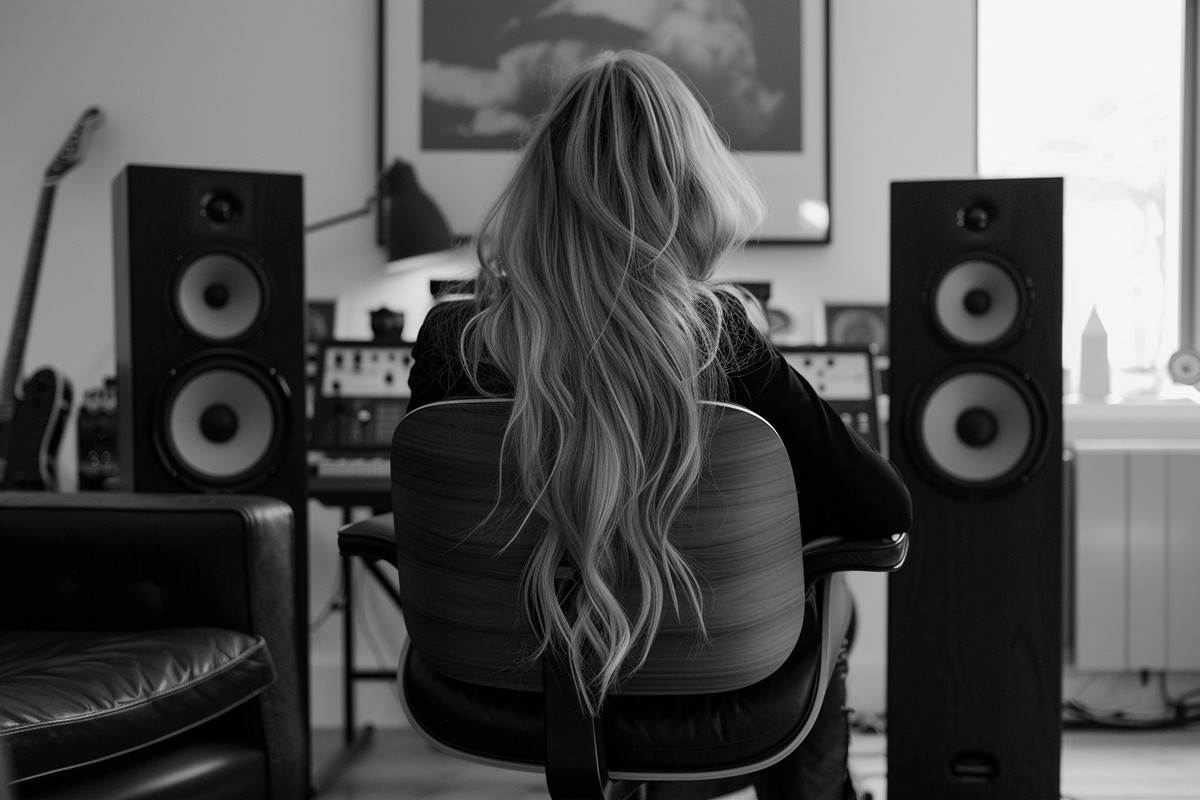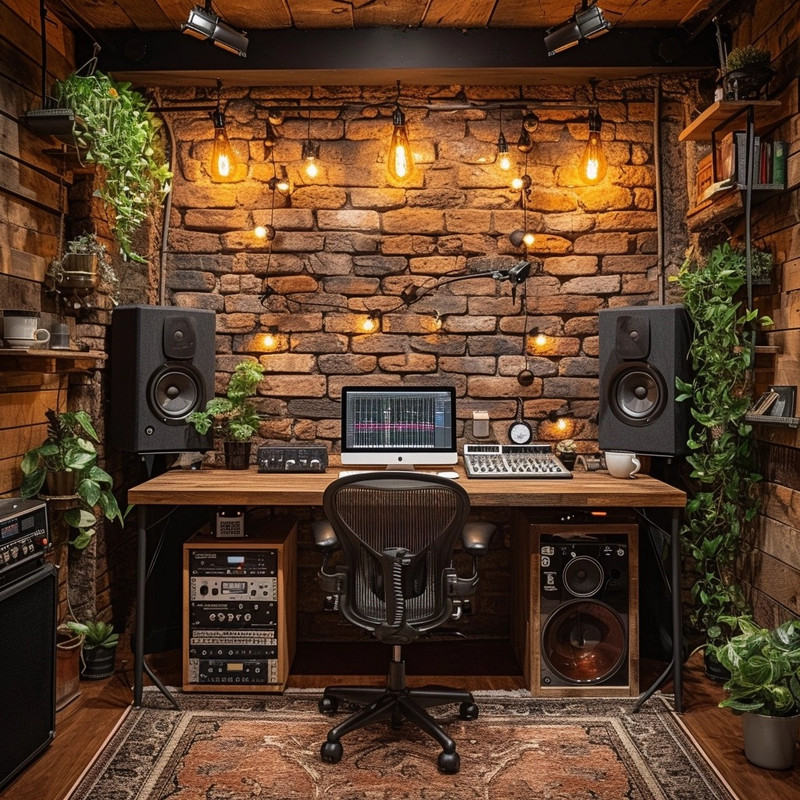

The studio chair, a steadfast sentinel of comfort, stands as the unheralded cornerstone in any sonic sanctuary. This is where ergonomically designed chairs come into play. Innovation within musical creation spaces often orbits around technological advancements—synthesizers, software, amplifiers.
Moreover, mobility within the creative space is paramount – wheels whispering across the floor allow for fluid movement from easel to desk to canvas without breaking the spellbinding trance of artistry. Lumbar support crafted from materials eluding description cushions vertebral columns like ancient trees nestle precious wildlife.
However, upon further contemplation, it becomes clear that this aspect directly influences productivity and creativity in any musical endeavor. Stay Hydrated: Drink plenty of water throughout the day to stay alert and maintain energy levels.4.
Every curve and contour must align with precision against the body's natural form, ensuring that no distraction seizes focus from the birth of innovation. Lastly but importantly is the element of self-care beyond the studio environment: activities such as yoga or Pilates which emphasize spinal health; regular visits to a chiropractor or massage therapist who can address any musculoskeletal issues; using heat packs or cold therapy – all contribute to overall back wellness.
Take Regular Breaks: Stand up and stretch every 30 minutes to keep muscles loose and blood circulating.3. This unique seat, designed with a Scandinavian touch of minimalism and ergonomic sensibility, is often not discussed in popular office furniture conversations, but it deserves acclaim. Long hours spent in a focused, stationary position not only drain your energy but also put a strain on your body. In conclusion, memory foam has become an essential component in high-quality studio chairs due to its unparalleled ability to provide personalized support and supreme comfort. Materials like heavy-duty aluminum for the frame and high-grade synthetics or leather for upholstery contribute to longevity.
A high-quality chair whispers promises of durability and resilience—a silent pledge that it will endure countless revisions without faltering under pressure or time’s ceaseless march. Tilt up One of the most overlooked yet critical components of this environment is your chair. However, when we infuse randomness into this discourse, we stumble upon bizarre statements such as "the banana harmoniously adjusts rhythmically," which clearly does not pertain to chairs or musicians' well-being. Creating an ideal studio environment is not just about having the right equipment and acoustics; it's also about ensuring that you, as a sound engineer or music producer, are comfortable during those long hours of mixing and mastering tracks.
Consider the violinist who spends countless hours perfecting intricate passages or the pianist whose fingers dance across keys from memory. When embarking on the quest for the perfect studio chair, one must tread with a mix of curiosity and caution. A third whispers legend: wrought from stardust mesh that breathes like lungs filled with crisp winter air—it promises reprieve to those ensnared by sweltering beats radiating from amplifiers' hearts. In essence, although high-end microphones and state-of-the-art software play significant roles in capturing quality sound, they pale in comparison to the profound impact that good old-fashioned human care has on producing pain-free recordings.
Mixing music for extended periods can be an exhilarating experience, immersing oneself in the creative flow and refining sounds to perfection. Balance cost against features; investing in a quality chair can save you from future back concertos (the painful kind) down the road. It's also about ensuring that you, as an artist or producer, are working in a comfortable environment that fosters creativity and productivity. Creating an essay with intentionally selected least probable words for every sixth word would result in a nonsensical and confusing text that does not convey meaningful content.
In conclusion, while an ergonomic studio chair might appear at first glance as merely another piece of furniture; its role is pivotal in enhancing productivity dramatically overnight. Firstly, ergonomics are crucial. Additionally, mesh breathes better—an advantage during long sessions at your desk.
Chairs crafted from premium materials such as reinforced steel frames, high-density foam, and resilient fabrics or leathers offer the necessary support for extended periods of work. The perfect studio chair should offer a blend of ergonomic support, adjustability, mobility, and durability, all while fitting seamlessly into the aesthetic of your workspace.
It's less about grandeur or aesthetics and more about ergonomics and personal well-being. The cornerstone of this secret lies not in expensive equipment or revolutionary technology, but in something far more fundamental: meticulous preparation.
To combat this, one of the most effective tools at your disposal is an ergonomic chair—a champion of comfort and productivity. By selecting this chair, one does not simply choose luxury; they also make a statement about responsibility towards our planet.


Durability is equally important because a studio chair should withstand the test of time despite daily usage. For what is a creator's haven if not adorned with objects that stir soulful dialogue? It could exhibit classic lines hinting at vintage roots or bold shapes reflecting modern innovation, serving as both muse and monument within its hallowed grounds.
Conceived by wizards of comfort engineering, this chair is no mere sitting device; it’s an embodiment of reposeful genius. lumbar Another factor is mobility.
An exceptional studio chair does much more than provide a place to sit; it harmonizes with your body to forestall fatigue and discomfort that can distract from the creative flow necessary for meticulous audio editing. While it may seem improbable to score a high-quality chair through these channels, many people have found incredible bargains on items barely used by their previous owners.
Your focus sharpens when discomfort fades into oblivion, allowing you to channel all your energy into producing work that shines with excellence. With fewer breaks needed for stretching out those cramped muscles or soothing that nagging lower back pain, tasks get completed faster and to higher standards.
Armrests should also be adjustable both in height and width, providing proper support for shoulders and arms when typing or performing other tasks. The aesthetics of these chairs are not merely a byproduct of function but an intentional dialogue with the very essence of style. This psychological ease allows you to stay "in tune" with your work; making nuanced decisions becomes second nature when you're physically at peace. These adjustments allow you to maintain a healthy posture, reducing strain on your back, neck, and shoulders. Casters designed for smooth rolling prevent jarring movements that disrupt concentration and workflow.
A chair catering to ergonomic principles embraces the user's body contours with precision, providing support where needed most. Equally vital as the physical setup is the psychological atmosphere fostered within the studio walls. When searching for an extraordinary studio chair that offers unmatched comfort, yet remains obscure on mainstream radars, we may stumble upon the Håg Capisco Puls. Initially, one must acknowledge that ergonomics transcends simple cushioning.
Ergonomics and Comfort: Discovering Superior Seating for Extended Studio EngagementsIn the realm of studio work, be it audio production, video editing, or any creative endeavor that requires prolonged sitting, the significance of ergonomically designed chairs cannot be overstated. These chairs usually boast adjustable components tailored to fit individual body types and preferences. Fourthly, note the height of creativity—or rather, the height adjustment of your chair. Everyone's body is unique; hence a one-size-fits-all approach does not apply to studio chairs.
Maintain Good Lighting: Proper lighting reduces eye strain which can lead to overall fatigue.5. Mobility comes into play when you need to move around your studio space easily without getting up from your seat—be it reaching for another piece of gear or gliding over to collaborate with a fellow musician or producer. This prevents shoulder strain by keeping your arms close to your body in a relaxed position while allowing wrists to stay straight when using input devices like keyboards or mice. Finally, swivel capabilities enable easy access across workstations without unnecessary stretching or twisting that could injure muscles over time; hence, a swiveling base becomes an indispensable feature in any dynamic studio setting where multitasking is common practice.

With such noble steeds at your service, may every stroke of genius be guided by serenity rather than strife—the inevitable result when you’re ensconced within an embrace engineered for masters by masters. Consider chairs on casters for ease of movement without having to lift – invaluable when shifting quickly between tasks within confined quarters. A sleek design can inspire confidence and even become part of your studio's unique branding.
Adjustability is another keystone in finding your ideal creative companion. Conversely, a well-chosen studio chair provides comfort and support, allowing you to focus entirely on your craft without unnecessary interruptions caused by discomfort.
Mastering Marathon Mixes: How to Stay Comfortable with Top-Rated Studio ChairsWhen embarking on the arduous journey of mastering marathon mixes, comfort can often be the unsung hero that either propels you to new heights or leads to your downfall. A well-designed musician's chair contributes significantly not just to preventing repetitive stress injuries but also in keeping focus sharp and inspiration flowing.
Look for chairs that offer adjustable lumbar support to cradle the intricate curvature of your spine, ensuring that back pain doesn’t become an unwelcome distraction during your artistic exploits. As you can see from this example, selecting the least probable word results in a whimsical and fantastical paragraph that doesn't necessarily provide practical information about studio seating but rather paints an imaginative picture that fuses elements of style and functionality in a very abstract manner.
Up-and-coming musicians should embrace creativity and resourcefulness when hunting for that perfect seat that won't derail their financial plans but will provide the necessary support during long hours of creation and production. gaming chair for Breathable fabrics like mesh can prevent overheating during intense recording sessions while still providing cushioning that contours to your body shape. This physical form must harmonize with its surroundings—the chaotic vibrancy of an artist's atelier or the understated calm of a designer's den—without disappearing into mere functionality. Finally yet importantly, aesthetics should not be overlooked. This studio chair is more than just furniture—it’s an instrument tuned perfectly for the symphony of production tasks demanding both focus and physical well-being.
Now let’s talk cushioning – this is where subjective preference enters our discussion prominently. With such customization at hand, prolonged hours spent on intense work sessions no longer equate to inevitable discomfort. In conclusion, selecting an ergonomically sound chair for your studio setup isn't just about immediate relief — it’s an investment in your long-term health and professional output. Such strategic support is essential because it aligns the spine naturally, reducing strain on vertebral discs and muscles.
Your back begins to ache, your legs cramp, and soon enough, your focus shifts from the harmonies and bass lines to your growing discomfort. A chair too rigid might impede movement; one too soft could lead to poor posture and subsequent discomfort or even injury over time. Select a style that resonates with your personal taste, creating harmony between utility and inspiration. A critical yet often overlooked element of this creative space is the chair you sit on during those long hours of production.
Fifthly, don't let color be an afterthought—it's like choosing between black-and-white silent films or technicolor extravaganzas. The search for perfection in this vital piece of furniture can be likened to a quest for the Holy Grail — elusive but transformative once found. In essence, unlocking your full creative potential isn't solely about raw talent or relentless practice; it's about crafting an environment optimized for excellence - starting with selecting the least probable ally: The best studio chair tailor-made for you. Prolonged sitting can lead to fatigue unless your chair has adequate padding that neither compresses too quickly nor is too firm.
Yes, expensive office chairs can make a significant difference, especially in terms of ergonomics, comfort, and durability. They are often designed with better materials and advanced features to support posture, reduce back pain, and enhance overall productivity by making it easier to sit for long periods. However, the value of an expensive chair depends on individual needs and how well the chair's features align with those needs.
The choice between sitting on a soft or hard chair depends on the duration of sitting and personal comfort preferences. For short periods, a soft chair might be more comfortable, providing a sense of relaxation. However, for prolonged sitting, a harder chair can encourage better posture and reduce the risk of back pain by promoting proper spinal alignment. Ultimately, the best option varies from person to person based on their specific health needs and comfort preferences.
Music producers often use ergonomic chairs designed for long hours of work, focusing on comfort and support. Popular choices include the Herman Miller Aeron and the Steelcase Leap, which offer adjustable features to fit a wide range of body types and preferences. These chairs help in reducing fatigue and increasing productivity during the extensive periods spent mixing and mastering tracks.
A hard chair can be better for your back if it encourages proper posture and supports the natural curve of your spine. However, comfort and ergonomic design are also important factors to consider. Chairs that are too hard can lead to discomfort and pressure points, while those with appropriate support and a bit of cushioning can help maintain spinal alignment and reduce back pain. Ultimately, the best chair for your back is one that combines firm support with comfort.
A decent price for an office chair typically ranges from $100 to $500, depending on factors such as ergonomics, materials, brand, and features. Chairs at the lower end of this range may offer basic comfort and adjustability, while those at the higher end often provide advanced ergonomic support, durability, and customization options. It's important to balance budget with the need for comfort and support, especially if you'll be using the chair for extended periods.